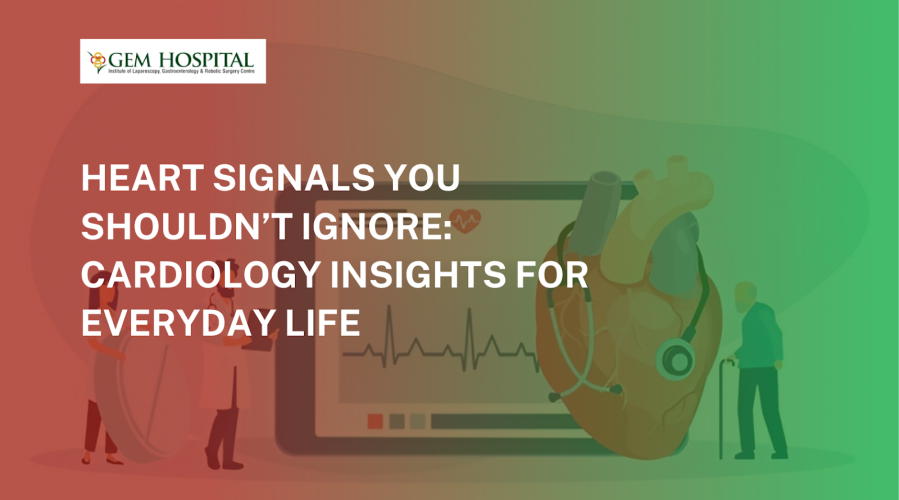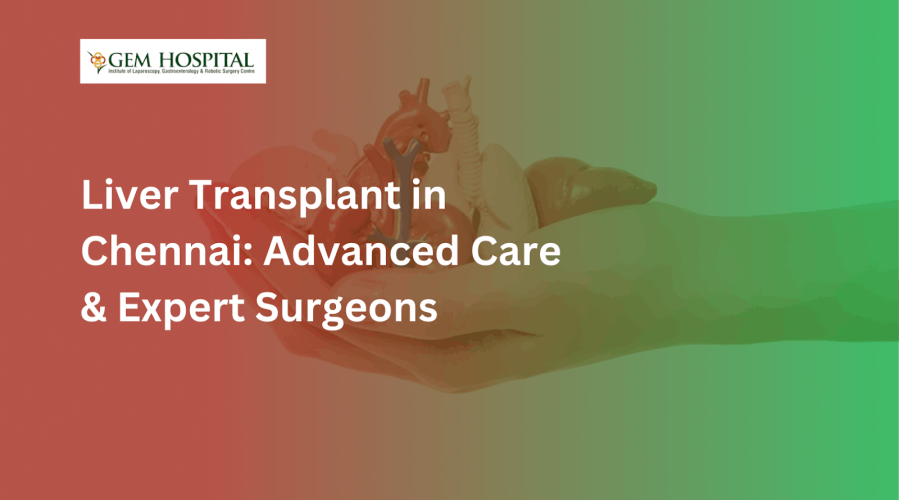Consult experienced hernia doctors in Chennai for expert surgical care. Advanced diagnosis, safe hernia surgery, and faster recovery with specialized treatment.
Heart Signals You Shouldn’t Ignore: Cardiology Insights for Everyday Life

When we hear of heart problems, we often conjure thoughts of someone holding their chest in distress. However, the truth is that the early signs of heart problems are generally much more subtle, and easier to miss.
Understanding these early warning signs can be the difference between catching a heart condition and suffering a life-threatening event. Regardless of age, whether in your 30s, 50s, or 70s, your heart is talking to you; you just need to learn to listen.
1. Fatigue That Feels “Different”
Everyone feels tired occasionally. But if you're tired suddenly doing menial tasks like walking to your car, climbing a short flight of stairs, or lugging groceries, that's a sign to pay attention.
This type of fatigue is common with people with heart problems, as the heart is not pumping enough oxygen-rich blood to the body. Women especially, often consider this as one of their first early indications of heart problems.
2. Shortness of Breath
Shortness of breath without a lot of effort especially when laying down can signify fluid accumulation in your lungs due to heart failure. If you feel like you are gasping for air after minimal effort or if you sleep with pillows to feel comfortable breathing at night, don't ignore it. This can be a quiet symptom of an underlying issue like coronary artery disease, or early-stage heart failure.
3. Chest Discomfort (Not Always Pain)
Chest pain is the most widely discussed heart risk symptom. However, what is less spoken about is the fact that heart-related chest discomfort is not always painful.
It could feel like:
• Pressure or tightness
• A squeezing feeling
• Burning or fullness
Sometimes it is present, at other times it isn't. It may occur with physical activity or in moments of emotional stress. It can even be experienced in other parts of the body like the arm, jaw, or back. Don't dismiss it as an acidity event or force of habit when it happens again.
4. Swelling in Legs, Ankles, or Feet
Fluid backing up into veins can cause a heart that has pump trouble to swell, commonly in your lower extremities.
Mild swelling can occur as a result of sitting or standing too long, but, persistent, evolving swelling should receive your attention, especially if you notice any of the following:
Socks leaving indentations on your skin
--Puffiness that worsens throughout the day
--Unexpected weight gain associated with fluids
5. Irregular Heartbeat or Fluttering Sensation
A random skipped beat or flutter is not always a cause for concern, but what if you experience any of the following:
- A fast or consistently irregular heartbeat
- Fluttering within your chest
- Lightheadedness or dizziness, accompanying the palpitations
If you felt any of these things, you may have arrhythmia, which will require medical attention. The type of rhythm caused by arrhythmia is concerning, because it may predispose you to having a stroke or congestive heart failure if the arrhythmia is not controlled.
6. Persistent Cough or Wheezing
As a general rule: If you have an annoying cough that won't go away (especially if it is worse at night) for example in addition to white or pink mucus, consider that it may be your heart to blame. When the heart is failing, the body retains fluids that can cause inflammation in the lungs, which can lead to a chronic cough.
You may be tempted to think it is merely a respiratory issue, but a heart evaluation can rule out what you may really need to be concerned with.
7. Sudden Dizziness or Fainting
The heart's job is to pump oxygenated blood to the brain. If there is a sudden decrease in blood flow, you may feel dizziness, lightheadedness, or fainting.
Dizziness can have many causes, and if you've been experiencing it regularly, or after some exertion, you should see a cardiologist to check out any heart rhythm issues or blood flow efficiency.
Listening to Your Body Saves Lives
The human body is remarkably effective at alerting you to issues if you do listen. The initial indicators of heart problems often show up weeks or months ahead of a major cardiac event.
Do not ignore unexplained tiredness or breathlessness.
- Don’t ignore unusual tiredness or breathlessness.
- Keep a log of symptoms, even if they seem small.
- Get a preventive cardiac check-up if you have risk factors like diabetes, high blood pressure, or a family history of heart disease.
When in Doubt, Get It Checked Out
Your heart is too vital to ignore. Taking action at the right moment can save not only your life but a future of health and wellness.
At GEM Hospital, we're advocates of early identification and holistic cardiac health. Our specialty-trained cardiologists, along with a host of testing and diagnostic equipment, look for clues about potential problems before they become emergencies.
Don't wait until you have other symptoms. Schedule your appointment today at GEM Hospital. Your heart will thank you.
Blogs & Article
Get advanced liver transplant treatment in Chennai with expert surgeons, modern technology, and comprehensive care for safe and successful outcomes.
Get advanced piles treatment in Erode with expert doctors. Safe procedures, modern technology, and effective care for fast relief and recovery.


